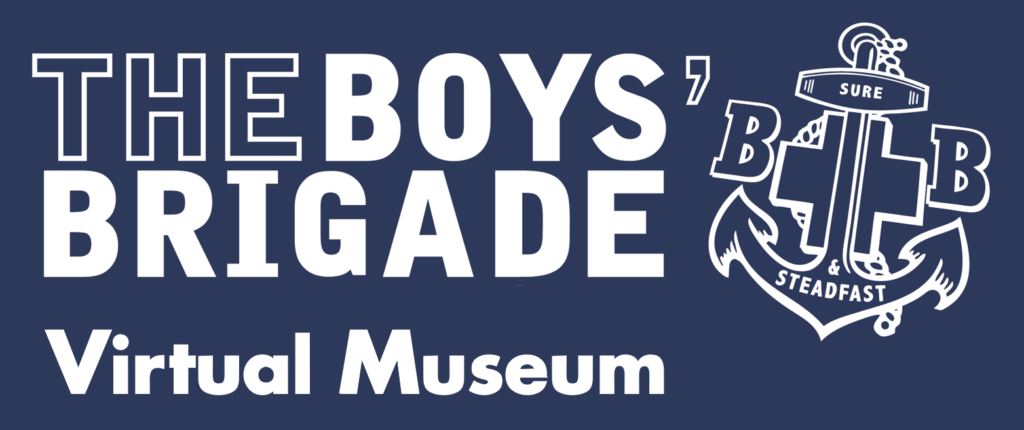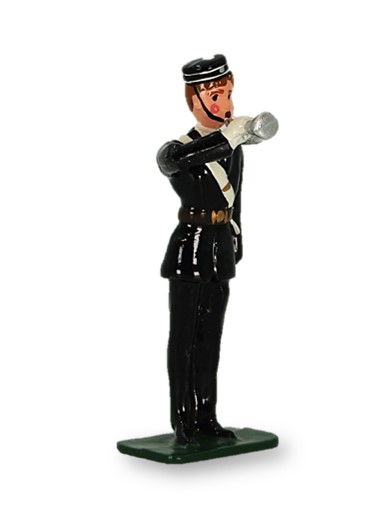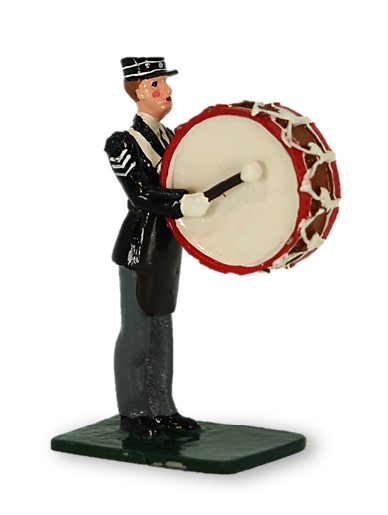Exeter Hall
Public meetings commonplace in late Victorian society, were the preferred method to convey political, social and religious ideas. Exeter Hall was a large public meeting place on the north side of the Strand in central London, opposite where the Savoy Hotel now stands. From 1831 until 1907 Exeter Hall hosted religious and philanthropic meetings, most notably the anti-slavery movement, as well as being the headquarters of the YMCA.
The annual reports of The Boys’ Brigade from the late 1890’s regularly reported on public demonstrations around the country, and by the end of the 1891-92 session, the annual report stated: ‘of all the Public Meetings held, however, the chief interest centres in the great Demonstration in Exeter Hall.’ The three demonstrations held between 1892 and 1894, in the Exeter hall, were recorded in much detail in the BB Gazette and Annual Reports of the period, and some extracts are recorded below.
Annual Report 1891-92: Of all the Public Meetings held, however, the chief interest centres in the great Demonstration in Exeter Hall, London, on Friday, 20th May, when the Earl of Aberdeen, Honorary President of the Brigade, presided over a meeting which was characterised by one of the leading religious papers of the day as “an unqualified success in point of attendance and enthusiasm.” In addition to the Chairman the speakers were the Rev. Donald Macleod, D.D., one of Her Majesty’s chaplains, and editor of Good Words ; the Rev. A. Lockett, Rector of Bessbrook, Ireland, and Captain 1st Bessbrook Company; the Rev. R. F. Horton, of Hampstead Congregational Church; Professor Henry Drummond, Honorary Vice-President of the Brigade; Mr. J. Carfrae Alston, Brigade President; and Mr. W. A. Smith, Brigade Secretary. The music was supplied by the splendid Band of the 1st Sheffield Company. Demonstrations in Drill were given by the 13th London and 2nd Richmond Companies, while the chorus singing by five hundred Boys of the London Battalion formed a very pleasing feature of the proceedings. The meeting was largely and favourably noticed by the press as having been one of the best – some went the length of calling it the best – of all the “May Meetings” of the year. Certain it is that the effect produced by the Meeting was wide and far reaching. I and should result in a great extension of the movement during the ensuing Session. The whole Brigade is under a debt of gratitude to all those who contributed in any way towards the success of the meeting.
Annual Report 1892-93: The second Public Meeting held in Exeter Hall on 2nd June, 1893, when the Right Honourable The Earl of Aberdeen, as Honorary President of The Boys’ Brigade, presided, accompanied by Lady Aberdeen. The attendance was not so large as at the previous meeting in the same Hall, caused probably by its being held at a later season of the year, and by the fact that none of the seats were free, as on the previous occasion. The meeting, nevertheless, was a very enthusiastic and successful one, and must have done much to confirm the good impression which the Brigade made on its first appearance in Exeter Hall. In addition to the Chairman, the speakers were the Rev. Wm. Macdonald Sinclair, the Venerable The Archdeacon of London; the Right Honourable Lord Kinnaird, Honorary Vice-President of The Boys’ Brigade; Mr. E. J. Kennedy, General Secretary of the Y.M.C.A., London; and the Rev. W. J. Dawson, of Highbury Congregational Church. The music was supplied by the Brass Band of the 1st Yalding Company, while Demonstrations were given by selected Teams from the following Companies of the Brigade Military Drill by 5th London Company; “Musical Drill without Arms” by 43rd London Company; “Ambulance Display” by 5th and 46th London Companies; “Signalling” by 2nd Richmond Company; Musical Drill with Arms” by 18th London Company, and “Musical Dumb Bell and Bar Drill” by 2nd South Shields Company, who had come to London for the occasion
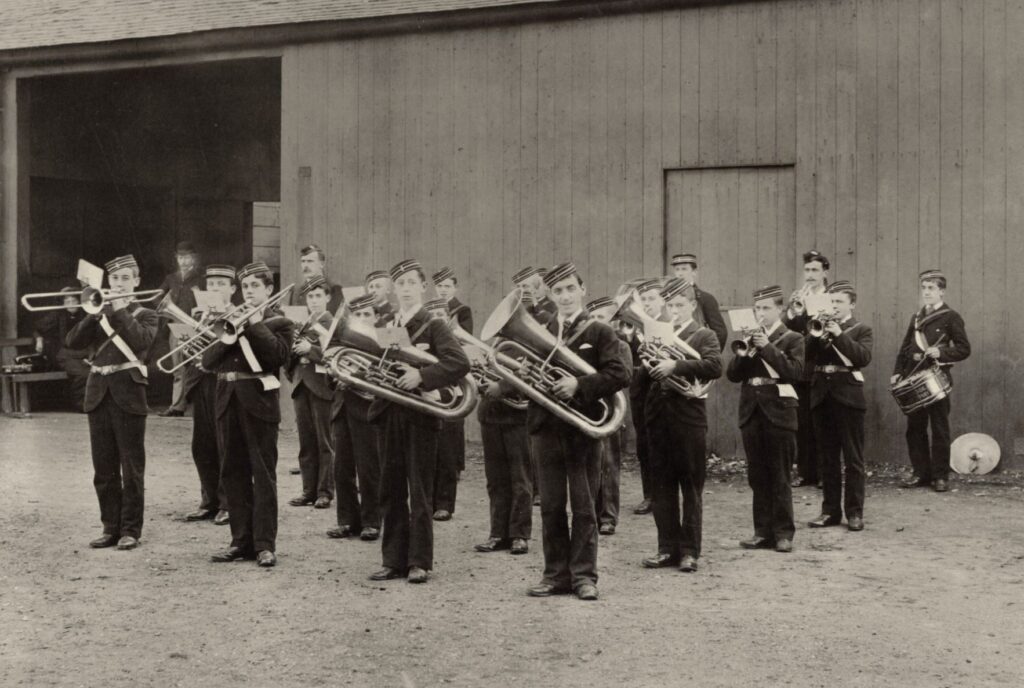
BB Gazette June 1894: The pronounced success of the Exeter Hall Meeting. Meeting, a full report of which appears in this number, [included below] must be very gratifying to all friends of the Brigade. The comments of the weekly religious press have been extremely favourable; even some papers that had not previously been remarkable for their sympathy with the Brigade seem now to be coming to see that there is a real power for good in the movement, provided it be kept on the distinctly Christian lines laid down in the Constitution, and this, we are sure, it will be the earnest aim of every Officer of the Brigade to ensure.
